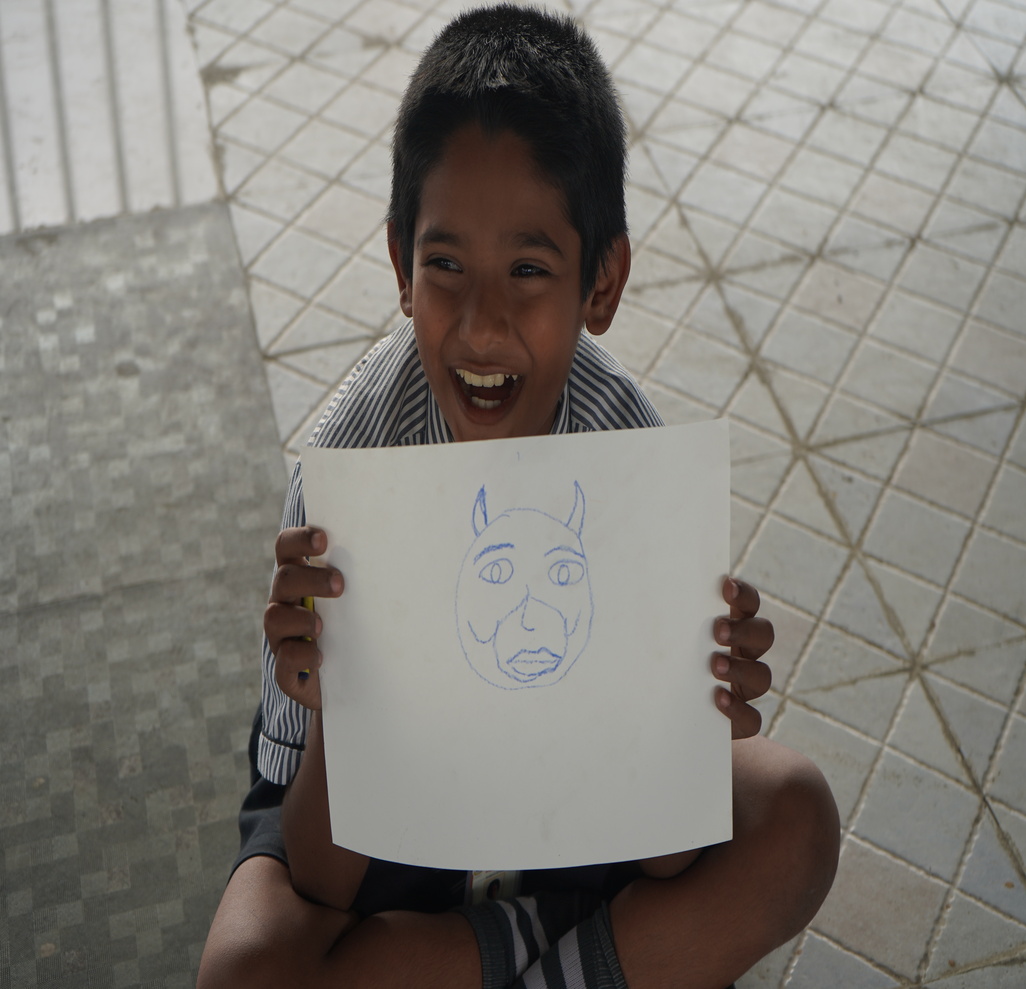Dream a Dream’s home activity kit helped young people connect with themselves and share their feelings about the extended lockdowns.
On 23rd March 2020, India went into a country-wide lockdown with a 4 hour notice and life as we knew changed overnight. The pandemic affected people regardless of nationality, gender, education or income. Unfortunately, the consequences of the virus were mostly felt by the vulnerable communities. Education is no exception. According to UNICEF, 286 million students were affected by the closure of schools, while students from privileged backgrounds were quick to adapt to alternative learning platforms, students from vulnerable communities had no access. With widespread unemployment and income loss , it should come as no surprise that more children opted out of schools and find work to support their families.
While the crisis shed light on inequities and inadequacies in our education system, another critical observation was the psycho-socio impact of the pandemic on children. National Institute of Mental Health and Neurosciences (NIMHANS) saw an occupancy rate of 80 to 90% with children reporting depression, anxiety and psychotic episodes. The helpline numbers for children were busy dealing with cases where children required support to deal with emotional trauma or coping with financial hardships. The overnight disruption of the ecosystem of a child was jarring and efforts to cope with the same are being taken ever since.
Dream a Dream introduced the Learning Home activity kit for the alumni of the After School Life Skills Programme (ASLSP) to help young people cope with the pandemic and reconnect with themselves and with the programme. According to Pavithra K.L, Associate Director, Innovations lab, Dream a Dream, “The intention behind the activity kit was to reach out to young people from our community centres in Bangalore. It was also a way to keep children engaged since schools were closed. We didn’t want any student to drop out from our programme because they weren’t able to access online learning.”
Dream a Dream’s After School Life Skills Programme (ASLSP) uses creative arts and football as mediums to engage and develop critical life skills among young people between the ages of 8 to 15 years. The programme is an innovation lab where new approaches to life skills development are introduced, demonstrated, documented, evaluated, and fed back into a larger framework for re-imagining learning for young people in the country. Since the programmes were experiential in nature, the online transition was not easy. The Learning home activity kit therefore provided a middle ground for students and facilitators to connect during the lockdown.
9th grader Karuna Marthish, an Alumni of the After School Life Skills Programme (ASLSP) shares, “I used to get scared interacting with people about small things because I thought that I will be let down or they will not accept my views, or they would tease me. This fear had become worse during the lock down. In Dream a Dream Learning home activity kit, there was one activity called Colourful Confusions. In this activity, we needed to make a dot in black colour which is called K and after that we had to draw whatever and fill the spaces with different colours. As our facilitator explained the activity, I learned that black lines are all those people who put us down or tease us and the colorful pictures are my dreams. Our facilitator also made us realise that there will always be many people who will tease you or discourage you or put you down, but we must not allow them to come in the way of our beautiful and colorful dreams; we need to move on by colouring and making our dreams beautiful. This activity helped me understand that the pandemic was just another obstacle that I can overcome by simply performing these mindfulness activities. Through these activities I learned to center myself and overcome the fear of rejection.”
Designed as a do-it-yourself kit, the home activity kit has 12 activities, which includes both sports and art and has separate sections for different age groups. The activities provide young people with an opportunity to engage emotionally and physically during the lockdown. The art section can help young people cope with their emotions through these colorful activities . Young people were also given some basic sport equipment like footballs, skipping ropes, frisbees and stress balls to ensure that they continue to play.
Revanna M, Manager, After School Life Skills Programme, Dream a Dream adds, “When the lockdown began, there were a lot of challenges. Many young people had no devices or even internet data packs to access online learning. The learning kit was an opportunity to re-integrate young people, the activities were self-explanatory and provided young people an opportunity to share their learnings on each activity on a weekly basis.”
The Dream a Dream’s home activity kit also includes questions at the end of each activity to help young people reflect on their emotions and learnings. The home activity kit can be found here – https://staging.dreamadream.org/wp-content/uploads/2021/04/home-activity-kit-compressed.pdf
Reference
Access the Learning home activity kit here – https://staging.dreamadream.org/wp-content/uploads/2021/04/home-activity-kit-compressed.pdf
The article is curated by Suchitha Balasubramaniam, Manager, Communication and Advocacy, Dream a Dream, India, with insights from the After School Life Skills Programme team. Thanks to the young people and the team that collaborated with us to help write this article.


